In the fast-paced and ever-evolving landscape of the modern workplace, success and advancement in one’s career is not solely determined by technical skills and expertise. It’s a great asset to be smart and adept at your actual job but truly excelling goes beyond that. A critical factor is emotional intelligence (EI). Defined as the ability to recognize, understand, and manage one’s own emotions while also effectively navigating the emotions of others, EI has emerged as a key predictor of success in the professional realm. According to recent studies, 71% of hiring managers consider emotional intelligence in the workplace to be a more important trait than high IQ when evaluating job candidates. But, on the flip side, only 36% of all people can recognize their own EI. In the following paragraphs, we explore the important role of emotional intelligence in the workplace.
The Powerhouse of Emotional Intelligence
Emotional intelligence is not just a buzzword; it’s a powerful asset that influences the dynamics of the workplace. In a corporate setting, where collaboration, communication, and teamwork are paramount, individuals with high emotional intelligence are better equipped to navigate the complexities of interpersonal relationships, foster a positive work culture, and enhance overall organizational success.
IQ vs. EI: The Game-Changing Distinction
While a high IQ may indicate cognitive prowess, emotional intelligence in the workplace brings a different set of skills to the table. Unlike IQ, which focuses on cognitive abilities, EI revolves around interpersonal and intrapersonal skills. IQ might help you solve complex problems, but it’s emotional intelligence that enables you to navigate the subtleties of human interaction, communicate effectively, and build meaningful relationships. In a professional setting, this distinction is crucial. Employees with high emotional intelligence in the workplace are not only adept at understanding their own emotions but are also attuned to the feelings of their colleagues, fostering a harmonious and collaborative work environment.
Three Scenarios of Emotional Intelligence in The Workplace
1. Consider a scenario where a team is working under tight deadlines, and tensions are running high. An emotionally intelligent leader recognizes the signs of stress and implements strategies to alleviate pressure, such as organizing team-building activities or providing additional support. In contrast, a leader lacking emotional intelligence in the workplace may exacerbate the situation by ignoring the emotional well-being of the team, resulting in decreased morale and productivity. From conflict resolution to effective communication and team cohesion, emotional intelligence manifests in various aspects of the workplace, creating a positive ripple effect on organizational success.
2. Imagine a scenario where two team members are in a heated disagreement over a project approach. An emotionally intelligent manager would not only address the technical aspects of the conflict but would also consider the emotions involved. They might facilitate a calm and open discussion, encouraging both parties to express their perspectives and feelings. By acknowledging and validating the emotions of each team member, the emotionally intelligent leader helps to de-escalate the tension, find common ground, and guide the team toward a collaborative solution. In contrast, a leader lacking emotional intelligence might dismiss the emotional aspects of the conflict, leading to unresolved issues, lingering resentment, and a potential breakdown in team cohesion.
3. Suppose a company is implementing a new technology system that disrupts established workflows. An employee with high emotional intelligence in the workplace would approach this change with a positive attitude, understanding that colleagues might feel uncertain or stressed during the transition. They might proactively offer support to their team members, share resources to facilitate learning, and provide encouragement. On the contrary, an employee with lower emotional intelligence might resist the change, express frustration openly, or fail to recognize the impact of their reactions on team morale. The emotionally intelligent approach not only facilitates a smoother transition but also contributes to a more positive and collaborative work culture.
Elevating Your Career Trajectory through EI

Beyond the interpersonal dynamics of the workplace, emotional intelligence can be a catalyst for career advancement. Individuals with high EI are often natural leaders, capable of inspiring and motivating their teams. They excel in roles that require effective communication, adaptability, and conflict resolution. As companies increasingly recognize the impact of emotional intelligence on overall performance, possessing a high level of EI becomes a sought-after skill that can set you apart in a competitive job market.
“Being able to recognize and understand your own emotions is a critical part of leadership. While showing some emotions as a leader can be useful in inspiring others, if you allow negativity or frustration to come out at the wrong time, they can hurt your ability to remain focused and poised.
Learning to “read” people and identify their underlying motives and intentions enables you to adapt your leadership approach accordingly. Leadership is not a “one-size-fits-all” endeavor.” –Matt Fearrington, Ph.D.
Cultivating Emotional Intelligence: A Blueprint for Success
Whether you’re a leader guiding a team or an employee aiming for personal growth, enhancing your emotional intelligence in the workplace is a journey worth undertaking. For leaders, this involves actively listening to team members, providing constructive feedback, and fostering an inclusive and empathetic work culture. For employees, it means developing self-awareness, managing stress, and honing interpersonal skills. Investment in training programs that focus on emotional intelligence can prove instrumental in equipping both leaders and employees with the tools they need to thrive in a dynamic workplace.
In conclusion, emotional intelligence is not a soft skill relegated to the sidelines; it’s a powerhouse that drives success in the workplace. As a company dedicated to employee selection and training, we understand the transformative impact that emotional intelligence in the workplace can have on individuals and organizations. By recognizing its significance, cultivating it within your workforce, and providing the necessary resources for growth, you pave the way for a resilient and successful workplace where employees not only excel in their roles but also contribute to a positive and thriving corporate culture.


